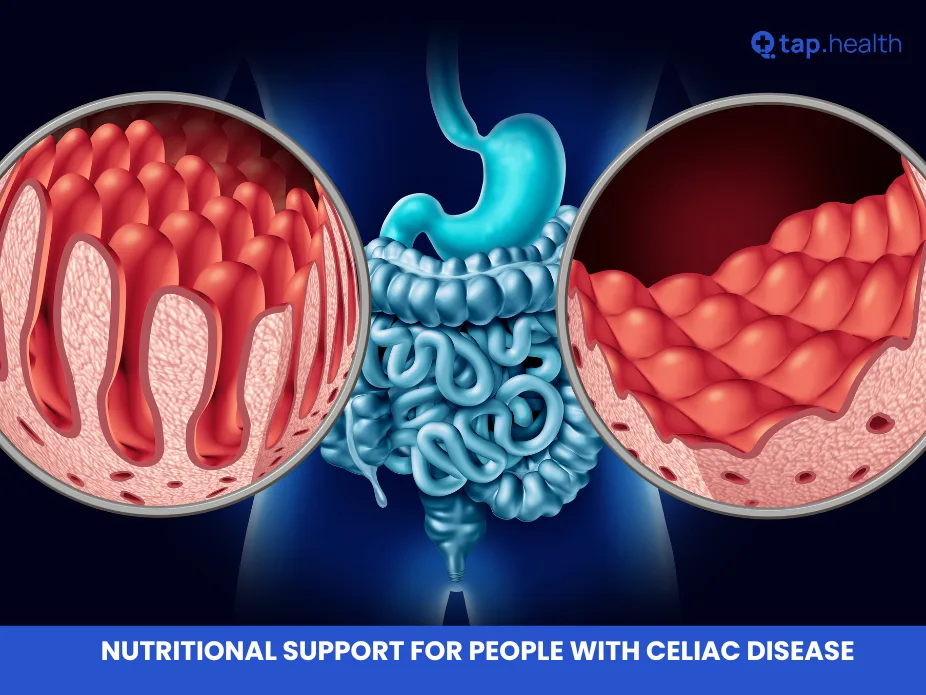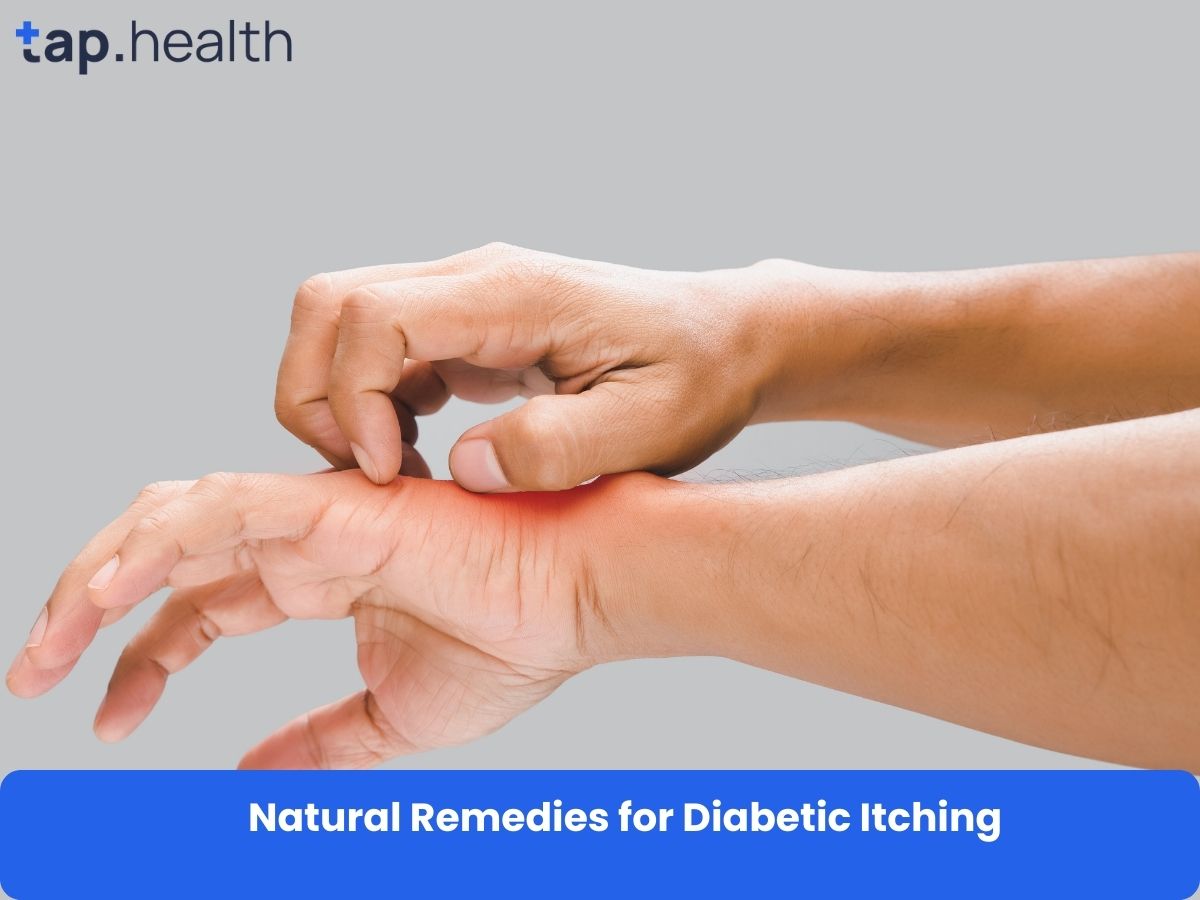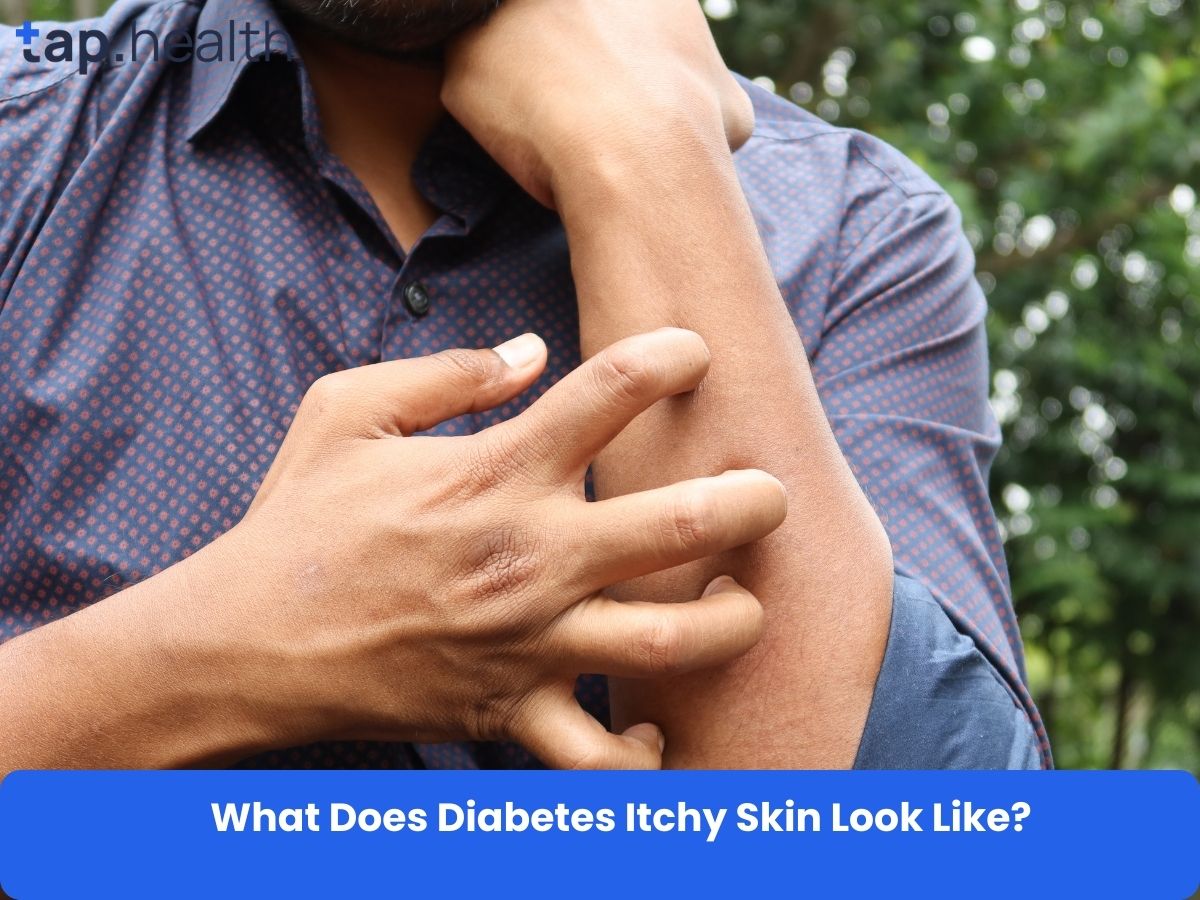Celiac disease is a chronic autoimmune condition that affects millions of people worldwide. It is triggered by the consumption of gluten, a protein found in wheat, barley, rye, and other grains. When someone with celiac disease consumes gluten, it triggers an immune response that damages the small intestine, leading to malabsorption of nutrients and a wide range of digestive and systemic symptoms. Managing celiac disease requires a strict, lifelong gluten-free diet, but understanding the role of nutrition can make a significant difference in managing symptoms and promoting long-term health.
In this article, we’ll explore the nutritional challenges that people with celiac disease face, the essential nutrients they need, and practical dietary strategies for supporting overall health while following a gluten-free lifestyle.
What is Celiac Disease?
Celiac disease is an autoimmune disorder where the ingestion of gluten causes an immune reaction in the small intestine. This immune response leads to inflammation and damage to the villi, tiny hair-like structures that line the intestine and are responsible for absorbing nutrients. As a result, individuals with celiac disease often experience nutrient deficiencies, digestive problems, and other health issues.
- Symptoms of Celiac Disease can include:
- Diarrhea or constipation
- Bloating and abdominal pain
- Fatigue and weakness
- Unexplained weight loss
- Anemia
- Skin rashes (such as dermatitis herpetiformis)
- Joint pain
If left untreated, celiac disease can lead to long-term health complications, including osteoporosis, infertility, and an increased risk of certain cancers. The only effective treatment for celiac disease is a lifelong gluten-free diet.
The Importance of Nutritional Support for People with Celiac Disease
While the gluten-free diet is essential for managing celiac disease, it can be nutritionally challenging. Many gluten-free foods are lower in certain essential nutrients that people with celiac disease need for optimal health. Additionally, the damage to the small intestine can impair nutrient absorption, leading to deficiencies.
1. Common Nutrient Deficiencies in Celiac Disease
People with celiac disease are at an increased risk for several nutrient deficiencies due to malabsorption and restrictions on certain food groups. The most common deficiencies include:
- Iron: Due to malabsorption in the intestines, people with celiac disease may develop iron deficiency anemia. Iron-rich foods like meat, beans, and fortified cereals are essential.
- Calcium and Vitamin D: Damage to the small intestine can impair the absorption of calcium and vitamin D, increasing the risk of osteoporosis and bone fractures. Dairy products, leafy greens, and fortified foods can help.
- Vitamin B12: This vitamin is absorbed in the small intestine, and its deficiency is common in people with celiac disease. A lack of vitamin B12 can lead to fatigue, nerve damage, and anemia.
- Folate: Folate deficiency is also common in people with celiac disease. It is essential for red blood cell production and overall health.
- Magnesium: Celiac disease can lead to a magnesium deficiency, which may cause muscle cramps, fatigue, and headaches. Foods like nuts, seeds, and leafy greens are excellent sources of magnesium.
- Zinc: Zinc is involved in immune function and wound healing, and it is often deficient in people with celiac disease. Zinc-rich foods include meat, shellfish, legumes, and seeds.
2. Gluten-Free Diet and Potential Nutritional Gaps
While a gluten-free diet is necessary for managing celiac disease, it can sometimes lead to gaps in nutrition, especially if individuals rely too heavily on processed gluten-free foods. Many of these products are low in fiber and nutrients like iron, calcium, and B vitamins. Additionally, gluten-free products may have higher amounts of sugar and fat compared to their gluten-containing counterparts.
People with celiac disease should focus on nutrient-dense, naturally gluten-free foods to meet their dietary needs. This includes a variety of fresh fruits, vegetables, whole grains, lean proteins, and healthy fats.
Essential Nutrients for People with Celiac Disease
1. Gluten-Free Whole Grains
While wheat, barley, and rye contain gluten, there are many naturally gluten-free grains that provide essential nutrients. Incorporating these grains into the diet helps ensure adequate intake of fiber, iron, B vitamins, and other important nutrients.
- Gluten-Free Whole Grains:
- Quinoa
- Brown rice
- Millet
- Buckwheat
- Amaranth
- Teff
- Oats (must be certified gluten-free)
Whole grains provide fiber, which is important for digestion, and are generally rich in B vitamins, magnesium, and iron.
2. Lean Protein Sources
Adequate protein intake is important for maintaining muscle mass, immune function, and overall health. While many protein-rich foods are naturally gluten-free, it’s important to avoid processed meats that may contain gluten as a filler or additive.
- Gluten-Free Protein Sources:
- Lean meats (chicken, turkey, beef, pork)
- Fish and seafood (salmon, tuna, sardines)
- Eggs
- Legumes (beans, lentils, chickpeas)
- Tofu and tempeh
- Nuts and seeds
Protein also supports the immune system, which is crucial for people with celiac disease, as they often have an overactive immune response to gluten.
3. Calcium and Vitamin D for Bone Health
Because people with celiac disease are at risk for bone loss and osteoporosis, it’s essential to ensure an adequate intake of calcium and vitamin D. Calcium helps build and maintain strong bones, while vitamin D aids in calcium absorption.
- Calcium-Rich Foods:
- Dairy products (e.g., milk, yogurt, cheese)
- Fortified plant-based milk (e.g., almond, soy, oat)
- Leafy greens (e.g., kale, bok choy, broccoli)
- Tofu
- Fortified orange juice
- Vitamin D-Rich Foods:
- Fatty fish (e.g., salmon, mackerel)
- Fortified dairy and plant-based milk
- Egg yolks
- Fortified cereals
People with celiac disease may also need to take vitamin D supplements if they are unable to meet their needs through diet alone.
4. Iron-Rich Foods
Since iron deficiency anemia is a common issue for those with celiac disease, it’s important to include iron-rich foods in the diet. Iron is essential for red blood cell production and the prevention of anemia.
- Iron-Rich Foods:
- Red meat (e.g., beef, lamb)
- Poultry (e.g., chicken, turkey)
- Lentils, beans, and chickpeas
- Spinach and other dark leafy greens
- Fortified cereals
To improve iron absorption, it is helpful to pair iron-rich foods with vitamin C (e.g., citrus fruits, bell peppers, tomatoes), as vitamin C enhances the absorption of non-heme iron (the type found in plant-based foods).
5. Folate (Vitamin B9)
Folate plays a key role in red blood cell production and DNA synthesis. A folate deficiency can lead to anemia and other health issues, so it’s essential to include folate-rich foods in the diet.
- Folate-Rich Foods:
- Leafy greens (e.g., spinach, kale, romaine lettuce)
- Fortified gluten-free cereals
- Legumes (e.g., lentils, chickpeas)
- Avocados
- Asparagus
Meal Planning for People with Celiac Disease
1. Breakfast Ideas
- Gluten-Free Oatmeal with chia seeds, almond butter, and fresh berries.
- Egg and Veggie Scramble with spinach, tomatoes, and gluten-free toast.
- Smoothie with spinach, frozen berries, chia seeds, almond milk, and a scoop of protein powder.
2. Lunch Ideas
- Quinoa Salad with chickpeas, cucumbers, tomatoes, and olive oil dressing.
- Grilled Chicken Wrap with gluten-free tortilla, avocado, lettuce, and salsa.
- Lentil Soup with gluten-free bread and a side of mixed greens.
3. Dinner Ideas
- Grilled Salmon with roasted sweet potatoes and steamed broccoli.
- Stir-Fried Tofu with quinoa, bell peppers, and a gluten-free soy sauce.
- Chicken and Vegetable Stir-Fry with brown rice and sesame oil.
Real-Life Scenarios
Scenario 1:
Anna, a 30-year-old woman with celiac disease, had struggled with chronic fatigue and digestive issues. After working with a dietitian, she incorporated more iron-rich foods like lentils, spinach, and lean meats into her meals. She also began taking a calcium and vitamin D supplement. Within a few months, Anna noticed improved energy levels and better digestive health.
Scenario 2:
John, a 45-year-old man with celiac disease, was diagnosed with osteoporosis due to a lack of calcium and vitamin D. His doctor recommended a gluten-free, nutrient-dense diet with an emphasis on fortified dairy products, leafy greens, and fatty fish. John also began regular weight-bearing exercises, which helped strengthen his bones.
Expert Contributions
Dr. Laura Williams, a gastroenterologist, explains:
“The key to managing celiac disease is strict adherence to a gluten-free diet, but it’s also important to focus on getting the right nutrients. Many gluten-free foods are nutrient-poor, so a well-balanced diet with adequate calcium, iron, and B vitamins is essential for maintaining overall health.”
Dr. Sarah Peterson, a nutritionist, adds:
“People with celiac disease need to be mindful of their nutrient intake. Supplements may be necessary in some cases, but nutrient-dense, whole foods should always be the primary source of vitamins and minerals.”
Conclusion: Navigating Celiac Disease with Nutritional Support
People with celiac disease can manage their condition effectively by following a strict gluten-free diet and paying attention to their nutritional needs. By including nutrient-dense, gluten-free foods and considering necessary supplements, individuals with celiac disease can reduce the risk of nutrient deficiencies and maintain optimal health.
With proper dietary planning, people with celiac disease can live healthy, vibrant lives, free from the symptoms and complications of the condition.
Sources:
- Celiac Disease Foundation: Nutrition and Celiac Disease
- National Institutes of Health: Celiac Disease and Nutrition
- American College of Gastroenterology: Celiac Disease Guidelines
FAQs About Celiac Disease and Nutrition
Q1: Can people with celiac disease eat oats?
Oats are naturally gluten-free but can be cross-contaminated with gluten. People with celiac disease should only consume certified gluten-free oats.
Q2: Do people with celiac disease need to take supplements?
Many people with celiac disease benefit from supplements, especially for nutrients like calcium, vitamin D, and iron. However, it’s always best to consult with a healthcare provider before starting supplementation.
Q3: What are the best gluten-free grains for a healthy diet?
Gluten-free grains such as quinoa, rice, buckwheat, millet, and amaranth are excellent sources of fiber, protein, and essential vitamins.
Q4: Can celiac disease cause bone loss?
Yes, osteoporosis and bone fractures are common in people with celiac disease due to malabsorption of calcium and vitamin D. Proper nutrition and supplementation are key to supporting bone health.
Q5: How can I manage celiac disease when eating out?
Always inform restaurant staff about your celiac disease and ask about their gluten-free options. Many restaurants now offer gluten-free menus, but it’s important to ensure that the food is not cross-contaminated with gluten.



